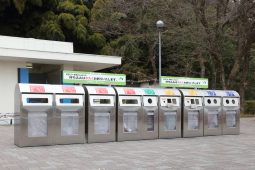It is an unfortunate reality that Japan is particularly vulnerable to natural disasters.
This is partially due to its location on the Pacific “Ring of Fire” which makes it the frequent victim of earthquakes and tsunamis, and also because of its climate which puts it in the path of typhoons, torrential rainstorms and ensuing floods and landslides. Nobody wants to think that such a disaster will happen in their area, but no matter where you live in Japan there is always a chance that it might happen, so it is best to prepare yourself for the worst. In this article we cover some basic rules of disaster preparedness.
Evacuation Shelters
Find out where hep rpest evacuation shelters are to both your home and your place of work. If you familiarize yourself with your local area, you will have an easier time finding an evacuation center in the event of an emergency. Your local municipal government homepage will have this information along with suggested evacuation routes, hazard maps and information on the type of emergencies likely to occur in your area.
Stockpile
In the event of a major disaster it is likely that essential supplies and utilities will be cut off.It is therefore recommended that people stock enough food, water, and medication to last them for three days. Canned food and ready-to-eat rice and noodles that don’t require cooking are typical items you should have on hand. Other items you may want to have ready are spare batteries, candles, toilet paper, tissues, and trash bags. Remember to regularly check the expiry-date on food items, medicine, and batteries so that they are ready to use when you need them. In Japan, September 1 st is officially Disaster Prevention Day, so this is a good time to check that your emergency supplies are all in order.
Emergency Backpacks
Prepare an emergency backpack and have it by the door so that it is ready to pick up and go in the event of an emergency evacuation. You want to keep your backpack light enough to carry so that it doesn’t slow you down. However, there are a number of items that are regularly recommended:
- Food and water. Suggested items are dry food such as energy bars and instant noodles, ready-to-eat rice, canned food (with a can opener), chocolate and other snacks that will help to cheer you up.
- A first aid kit, your regular medications, toilet paper, a toothbrush, and sanitary napkins. Portable emergency toilets are another item that you can purchase in advance.
- At least one change of clothing.
- Photocopies of your important documents with some ready cash and coins. It is a good idea to keep your bankbook, passport, health insurance card, and a hanko seal all together with your credit cards so that you can easily grab them if you need to leave in a hurry.
- Some other items that may prove invaluable are a portable radio, a flashlight, a raincoat, a lighter, a blanket, work gloves, candles, batteries, a whistle, and a Swiss Army knife.
How to Survive an Earthquake
Mild earthquakes are fairly common in Japan and no cause for panic. However, if the shaking gets really violent you should drop to the floor and cover your head. If you can, take shelter under a table, and stay away from windows and tall items of furniture that might fall on you. If you live near the sea, keep an eye on tsunami warnings following an earthquake. If a tsunami warning is issued, you will need to get to higher ground, so prepare yourself in advance by familiarizing yourself with your local topography. You can check for tsunami warnings on TV or check the English webpage of the Japan Meteorological Agency which you can also use to get updates on both earthquakes and extreme weather events: http://www.jma.go.jp/jma/indexe.html
What to do During a Typhoon
Japan is regularly hit by a succession of typhoons through the summer and autumn each year. High winds can be dangerous, so the best thing to do is to stay indoors until the storm is past. If your area is at risk of floods or landslides you should check local weather reports or the Japan Meteorological Agency website.
This is a brief summary of things you can do that will help you in the event of an emergency situation in Japan. For a more detailed guide check the English-language Disaster Preparedness guide provided by Tokyo Metropolitan Government: http://www.metro.tokyo.jp/english/guide/bosai/index.html








